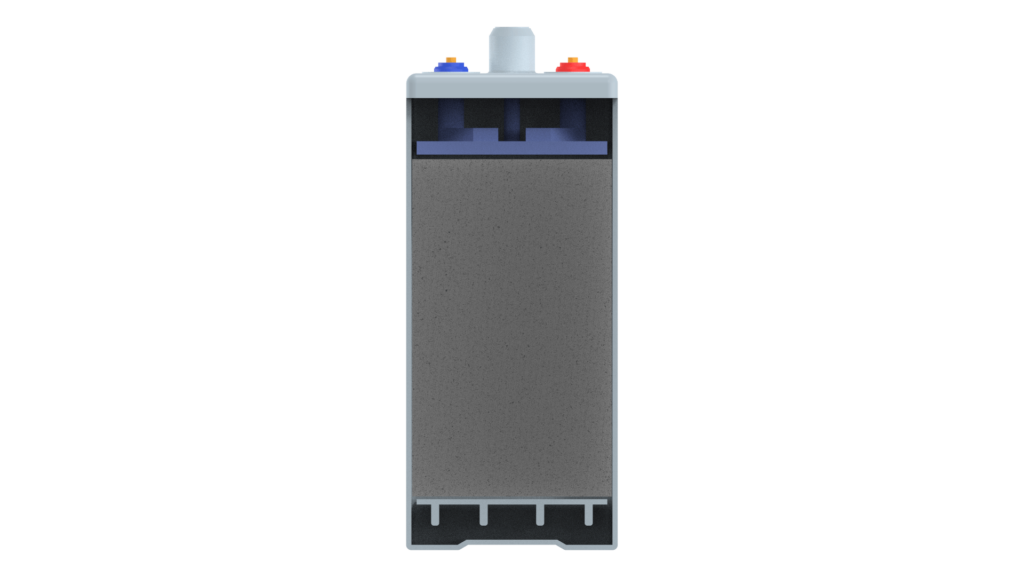OPzV (Ortsfest verschlossene Batterie) and OPzS (Ortsveränderliche verschlossene Batterie) are both types of valve-regulated lead-acid (VRLA) batteries commonly used in stationary applications, such as telecommunications, renewable energy systems, and backup power supplies. While they share some similarities, there are key differences in their design and application.
- Type of Electrolyte:
- OPzV Batteries: OPzV batteries use a gel electrolyte. The gel electrolyte is in the form of a silica gel, which immobilizes the electrolyte and reduces the risk of acid stratification.
- OPzS Batteries: OPzS batteries, on the other hand, use a liquid (flooded) electrolyte, typically in the form of diluted sulfuric acid.
- Construction:
- OPzV Batteries: OPzV batteries are characterized by tubular positive plates and a gel electrolyte. The tubular design provides high cycling capability and resistance to deep discharges.
- OPzS Batteries: OPzS batteries also have tubular positive plates but with a liquid electrolyte. They are designed to withstand repeated deep discharges and offer good cycling performance.
- Sealing and Valve Regulation:
- OPzV Batteries: OPzV batteries are sealed, and the gel electrolyte immobilizes the acid, preventing spills and making them maintenance-free. They are also equipped with a valve that allows the release of excess gas during overcharging.
- OPzS Batteries: OPzS batteries are also sealed, but they have a vent to release excess gas during charging. However, unlike OPzV batteries, OPzS batteries may require occasional topping up with distilled water to maintain electrolyte levels.
- Application Differences:
- OPzV Batteries: OPzV batteries are particularly well-suited for applications with deep cycling requirements, such as renewable energy systems (solar and wind), where they can endure regular charge and discharge cycles without significant degradation.
- OPzS Batteries: OPzS batteries are commonly used in stationary applications where a reliable and stable power supply is needed, and the cycling requirements may not be as frequent or intense as in renewable energy systems.
- Performance in High Temperatures:
- OPzV Batteries: Gel electrolytes in OPzV batteries provide good performance in high-temperature conditions and reduce the risk of drying out during extended use.
- OPzS Batteries: OPzS batteries are generally less sensitive to high temperatures than some other battery types, but they may still require attention to prevent drying out over time.
In summary, both OPzV and OPzS batteries are suitable for stationary applications, and the choice between them depends on specific requirements. OPzV batteries are often chosen for their deep cycling capabilities and maintenance-free operation, while OPzS batteries are selected for reliable power supply applications where cycling may be less frequent. The decision may also be influenced by factors such as cost and environmental considerations.


